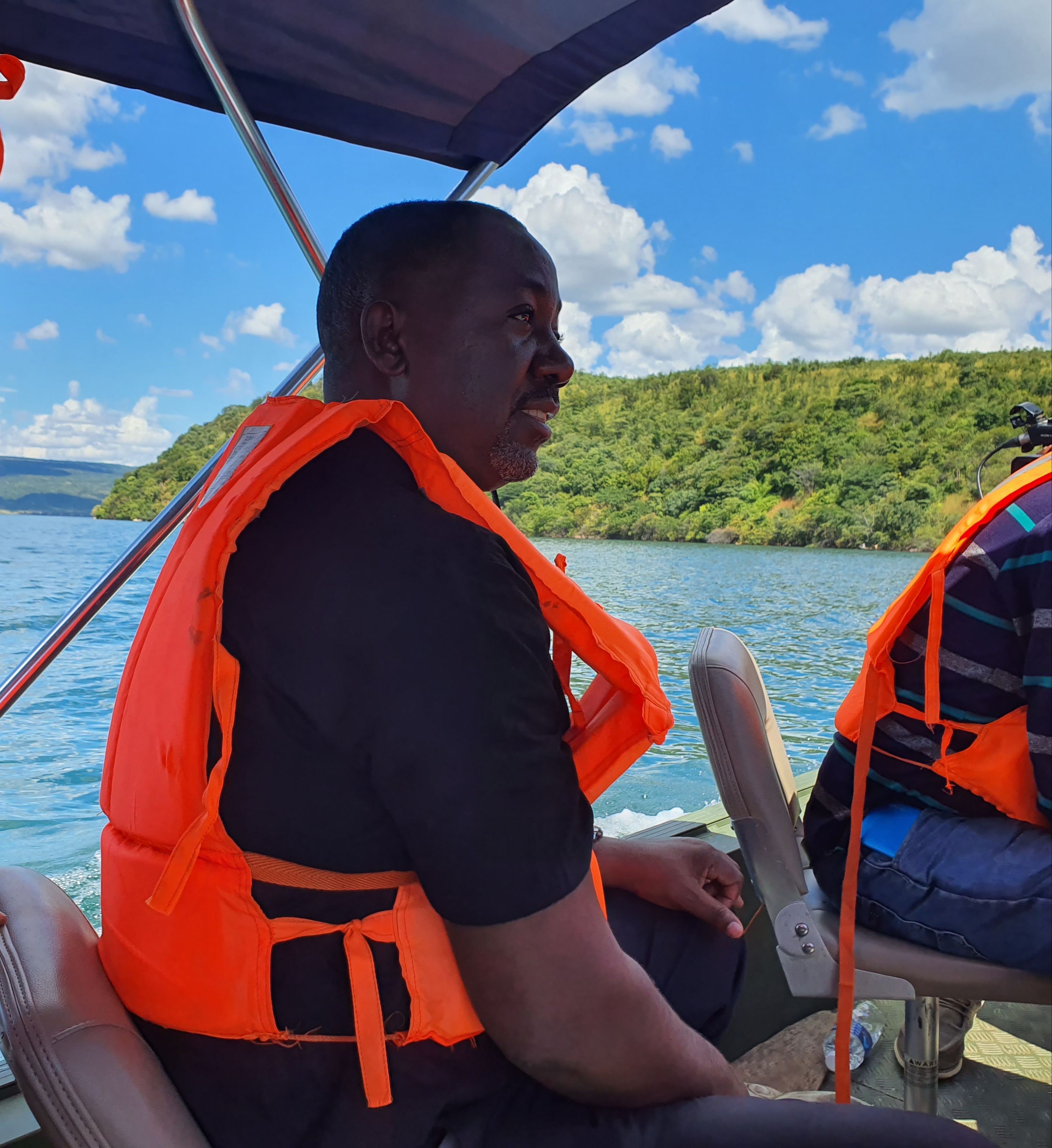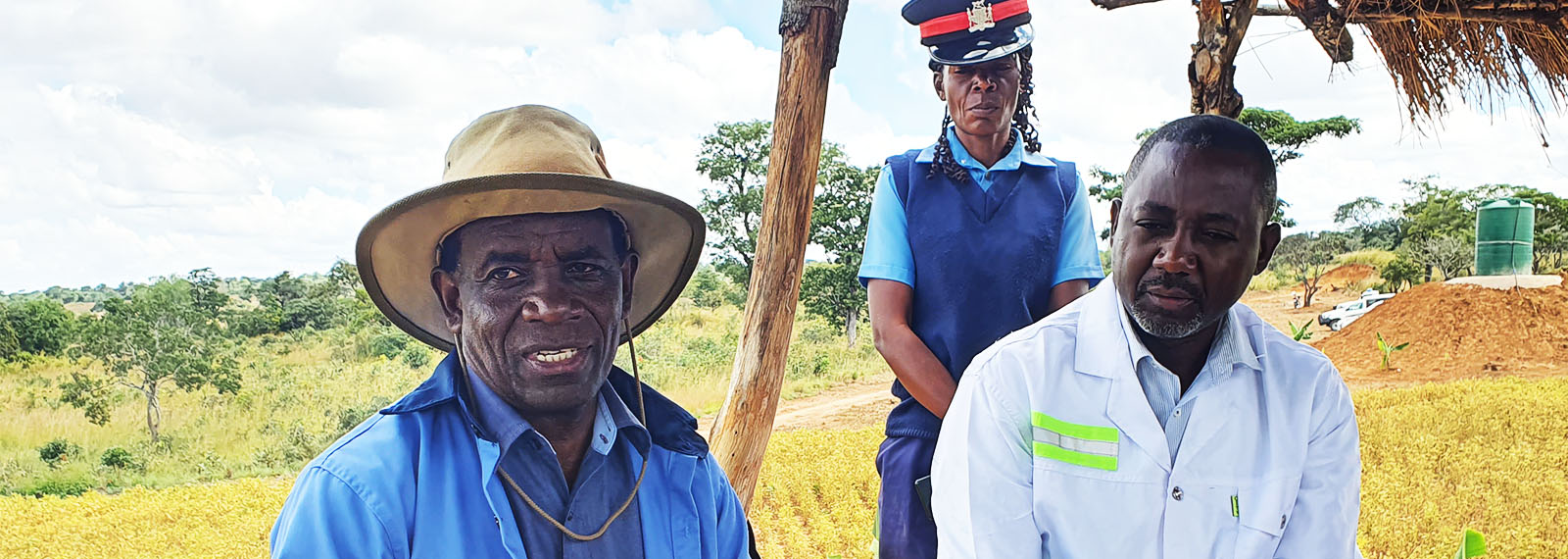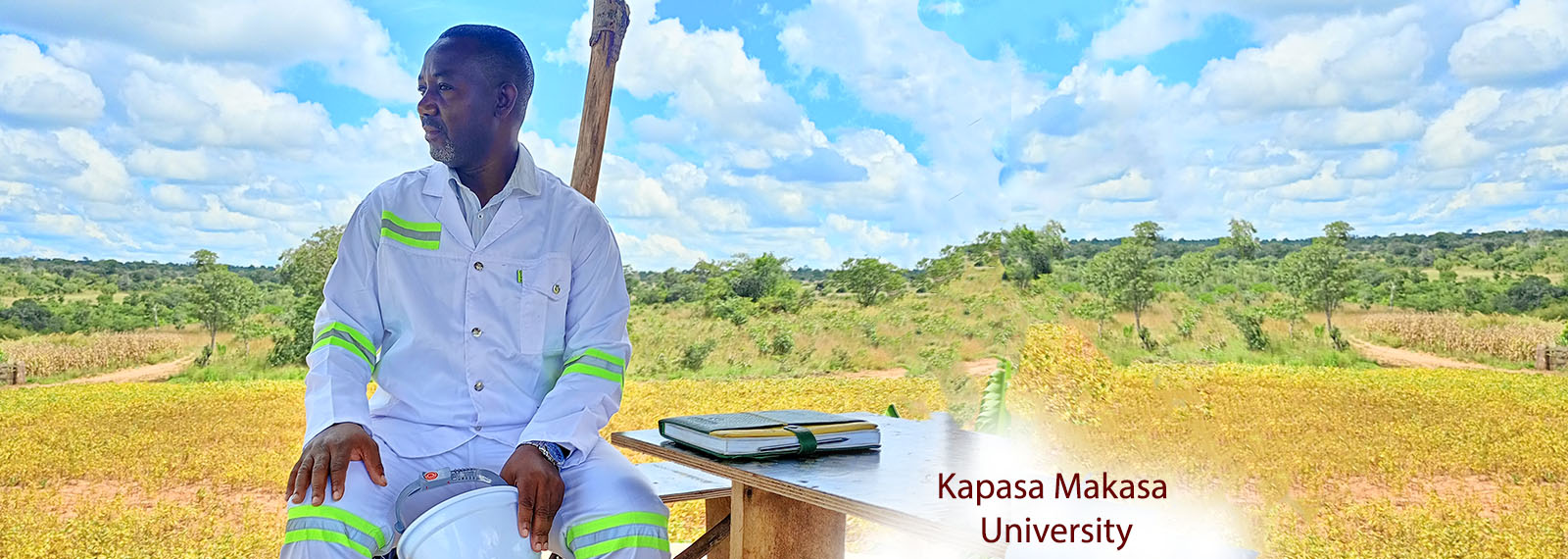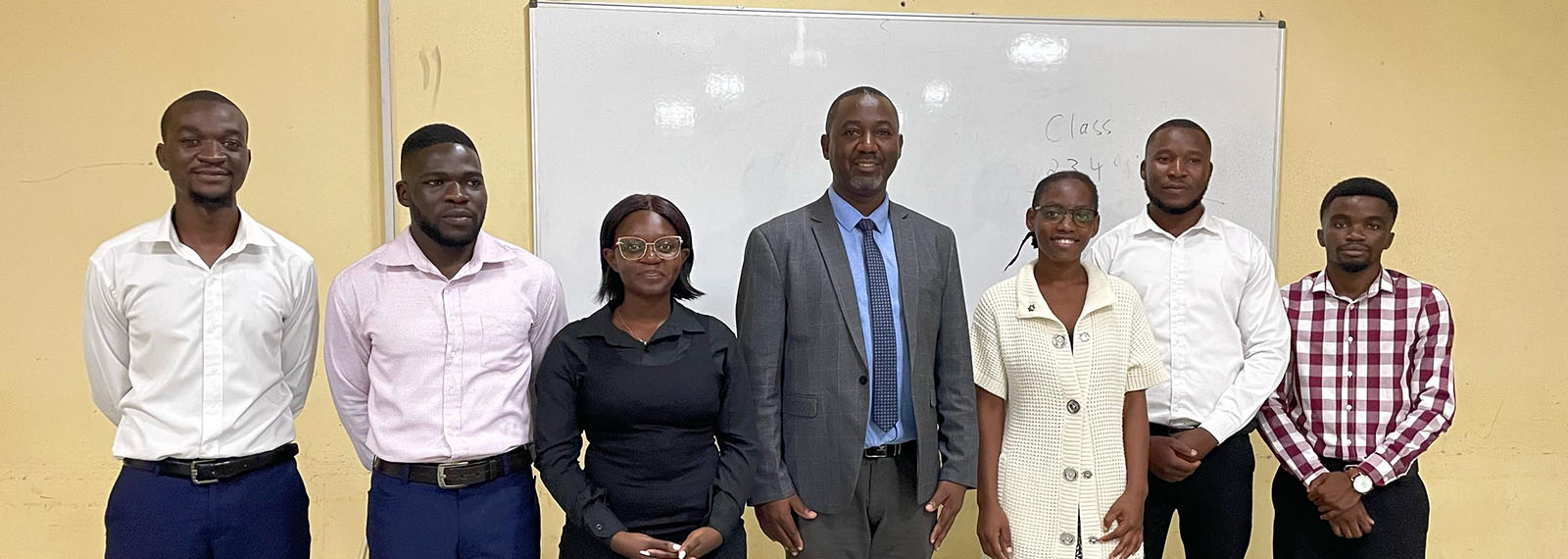PS Education Services tours Kapasa Makasa University

In April, the Permanent Secretary for Education Services, Dr. Kelvin Mambwe, embarked on a familiarization tour of Kapasa Makasa University (KMU), commending the institution for its bold strides in research implementation, innovation, and hands-on student engagement.
Dr. Mambwe’s tour began in Mpulungu, on the shores of Lake Tanganyika, where he visited KMU’s 65-hectare fish farm. This facility is set to house the upcoming National Tilapia Breeding and Production Center, a major initiative being developed in partnership with Guangdong Ocean University and Guangdong Evergreen Group Company of China. The project promises to position KMU and Zambia as a regional leader in aquaculture research and fish production.
From Mpulungu, the Permanent Secretary proceeded to Senga Hill District, where KMU operates a vast 500-hectare crop farm. The facility is a vital part of the university’s agricultural research and training program, supporting food security efforts and sustainable farming practices.
At the university’s main campus, Dr. Mambwe explored a range of facilities that underscore KMU’s commitment to transforming research into tangible community benefits. He visited the university’s hatchery and livestock farm, as well as a 20-hectare maize farm that supports both practical student learning and value chain research.
A particular highlight of the tour was the student-led ICT exhibition, where Dr. Mambwe experienced the use of 3D printing technology—an example of how the university integrates digital innovation into learning and problem-solving.
The Permanent Secretary also toured the Value Addition Facility, where he observed machines producing cooking oil from sunflower and soya beans, mealie meal and meal samp from maize, and fish feed made from sunflower cake, soya beans, and maize bran. These facilities not only serve as learning platforms for students but also offer sustainable solutions for rural development and agro-processing.
In his remarks, Dr. Mambwe applauded Kapasa Makasa University for "prioritizing the implementation of research beyond academic journals", noting that the institution exemplifies the kind of practical, innovation-driven education necessary for national development.
“KMU’s integrated approach to education, agriculture, technology, and entrepreneurship is a model worth emulating. It shows what is possible when research is turned into real-world solutions,” he stated.
Kapasa Makasa University continues to align itself with Zambia’s broader educational and economic goals by fostering a culture of innovation, self-reliance, and community impact.


